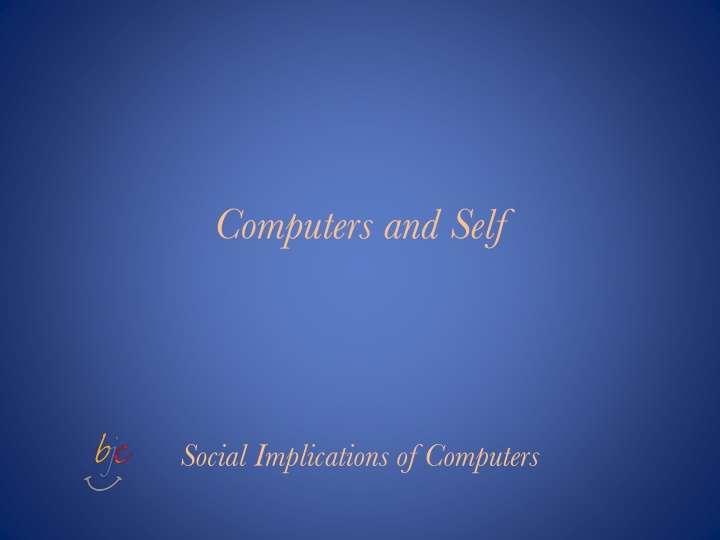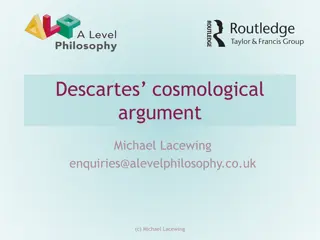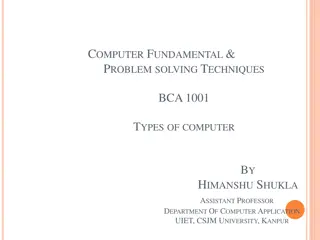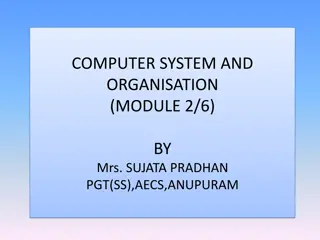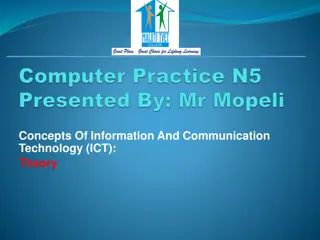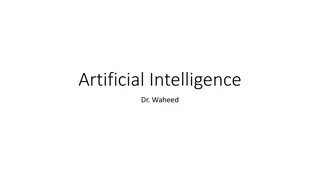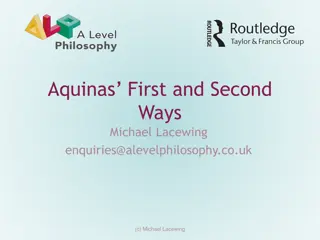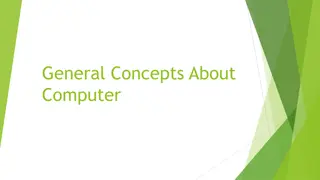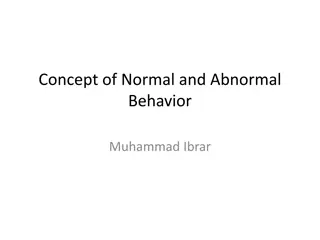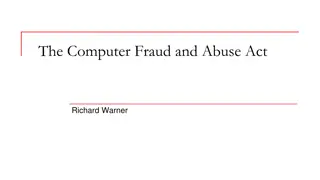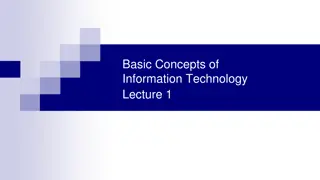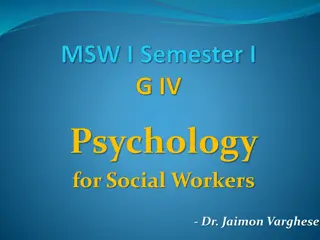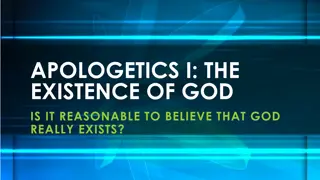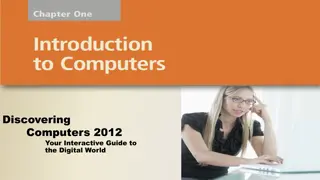Implications of Computers on Human Existence and Behavior
Exploring the philosophical debate between free will and predestination, the influence of online personas on real-life identities, the potential for computers to understand us better than ourselves, and the evolving role of humans in an increasingly automated world. These themes delve into the complex relationship between technology and humanity, raising thought-provoking questions about our future interactions with computers.
Download Presentation

Please find below an Image/Link to download the presentation.
The content on the website is provided AS IS for your information and personal use only. It may not be sold, licensed, or shared on other websites without obtaining consent from the author.If you encounter any issues during the download, it is possible that the publisher has removed the file from their server.
You are allowed to download the files provided on this website for personal or commercial use, subject to the condition that they are used lawfully. All files are the property of their respective owners.
The content on the website is provided AS IS for your information and personal use only. It may not be sold, licensed, or shared on other websites without obtaining consent from the author.
E N D
Presentation Transcript
Computers and Self Social Implications of Computers
Free Will vs. Predestination Do people have free will? An ancient question: Greek mythology: the Fates (Clotho, Lachesis, Atropos) early Christianity: God is omniscient, so knows what we will do, but we are punished or rewarded for our choices. 1600s: Newton s laws of motion Given the position and momentum of everything now, we can predict future behavior perfectly (people as clockwork)
Free Will vs. Predestination early 1900s: Freud and the unconscious conscious mind is the tip of the iceberg behavior determined by drives (food, water, sex) behavior is overdetermined (lots of reasons for any action) late 1900s to now: People as Computers cognitive science uses computers as extended metaphor e.g., behaviors carried out without explicit cognition are compiled Even primitive AI software (ELIZA) can seem human-like. software neural nets as successful AI technique Does quantum indeterminacy leave room for free will, or merely for randomness?
Virtual Personae in Social Networks People can and do take on personalities online that are different from their real-life selves. Men as women, women as men Thieves, warriors, wizards... Is this qualitatively different from the different faces we show different people (parents, friends, bosses) in person? Do online personalities influence real-life ones? (for example, do violent video games make us violent?)
Can Computers Know Us? We want to know more about you than you do yourself. Google Customized search responses, Amazon recommendations, all assume that our past predicts our future. Predictive arrest of likely criminals has been proposed. Social media are democratizing in that anyone can post, but flattening in that what you had for dinner seems as important as your deepest thoughts and feelings.
What Are People For? Industrial automation is >400 years old. More recently, human service jobs seem automatable: Computer as psychotherapist Computer as teacher The answer to what do you do and what do you want to be when you grow up has always been a job. Do computers change that?
